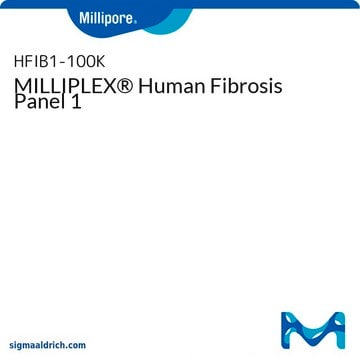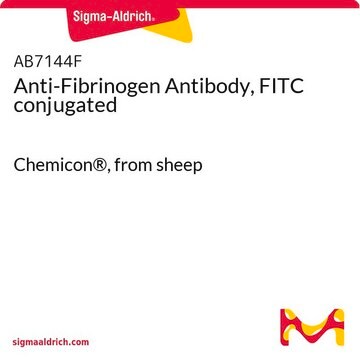MAB8257F-5
Anti-Influenza A Antibody, nucleoprotein, clone A1
clone A1, Chemicon®, from mouse
Sign Into View Organizational & Contract Pricing
All Photos(1)
About This Item
UNSPSC Code:
12352203
eCl@ss:
32160702
NACRES:
NA.45
Recommended Products
biological source
mouse
Quality Level
conjugate
FITC conjugate
antibody form
purified antibody
antibody product type
primary antibodies
clone
A1, monoclonal
species reactivity
human
manufacturer/tradename
Chemicon®
technique(s)
immunofluorescence: suitable
isotype
IgG2a
shipped in
wet ice
Specificity
Specific for the Influenza A nucleoprotein. Has stronger binding with N1-type Flu A. No cross reactivity seen to influenza B or other respiratory viruses.
Immunogen
Epitope: nucleoprotein
Influenza A
Application
Indirect Immunofluorescence
Optimal dilutions must be determined by end user.
Optimal dilutions must be determined by end user.
Research Category
Infectious Diseases
Infectious Diseases
Research Sub Category
Infectious Diseases - Viral
Infectious Diseases - Viral
This Anti-Influenza A Antibody, nucleoprotein, clone A1 is validated for use in IF for the detection of Influenza A.
Physical form
Purified, FITC conjugated Liquid in 0.02M phosphate buffer, 0.25M sodium chloride, pH 7.6 with 15 mg/mL BSA and 0.1% sodium azide
Storage and Stability
Store at 2° to 8°C.
Other Notes
Concentration: Please refer to the Certificate of Analysis for the lot-specific concentration.
Legal Information
CHEMICON is a registered trademark of Merck KGaA, Darmstadt, Germany
Disclaimer
Unless otherwise stated in our catalog or other company documentation accompanying the product(s), our products are intended for research use only and are not to be used for any other purpose, which includes but is not limited to, unauthorized commercial uses, in vitro diagnostic uses, ex vivo or in vivo therapeutic uses or any type of consumption or application to humans or animals.
Not finding the right product?
Try our Product Selector Tool.
recommended
Product No.
Description
Pricing
Storage Class Code
12 - Non Combustible Liquids
WGK
WGK 2
Flash Point(F)
Not applicable
Flash Point(C)
Not applicable
Certificates of Analysis (COA)
Search for Certificates of Analysis (COA) by entering the products Lot/Batch Number. Lot and Batch Numbers can be found on a product’s label following the words ‘Lot’ or ‘Batch’.
Already Own This Product?
Find documentation for the products that you have recently purchased in the Document Library.
Jie Zhou et al.
EMBO molecular medicine, 11(1) (2018-12-01)
Glycine decarboxylase (GLDC) was prioritized as a candidate susceptibility gene to severe influenza in humans. The higher expression of GLDC derived from genetic variations may confer a higher risk to H7N9 and severe H1N1 infection. We sought to characterize GLDC
Madeleine F Jennewein et al.
iScience, 25(4), 104088-104088 (2022-04-12)
Pregnancy represents a unique tolerogenic immune state which may alter susceptibility to infection and vaccine response. Here, we characterized humoral immunity to seasonal influenza vaccine strains in pregnant and non-pregnant women. Although serological responses to influenza remained largely intact during
Jeannine A Majde et al.
Journal of neurovirology, 13(5), 399-409 (2007-11-13)
Influenza pneumonitis causes severe systemic symptoms in mice, including hypothermia and excess sleep. The association of extrapulmonary virus, particularly virus in the brain, with the onset of such disease symptoms has not been investigated. Mature C57BL/6 male mice were infected
Our team of scientists has experience in all areas of research including Life Science, Material Science, Chemical Synthesis, Chromatography, Analytical and many others.
Contact Technical Service







